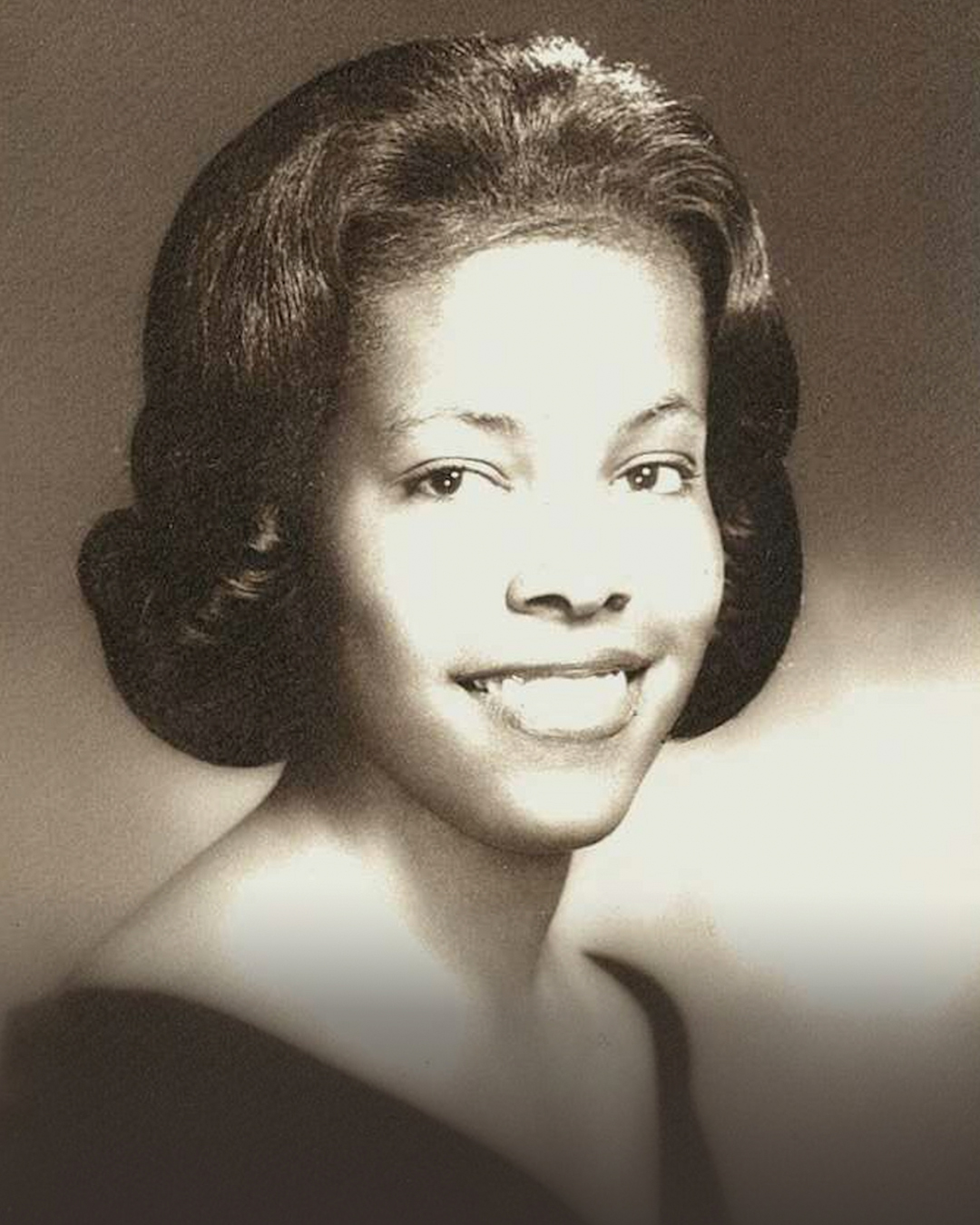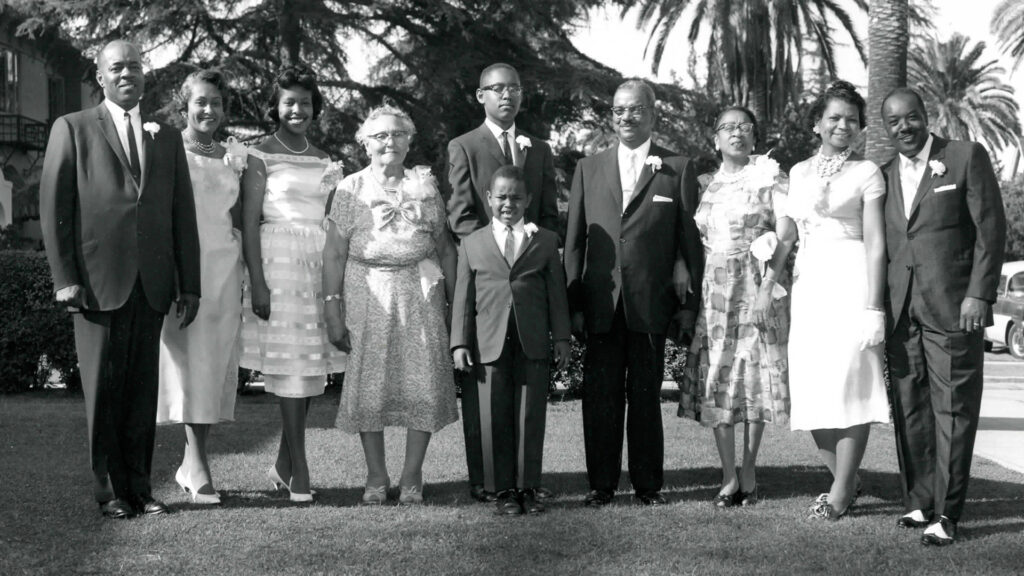
Remembering Lorraine Frances Doggett
By Danielle Jones
A distinguished Black mezzo soprano, Lorraine Frances Doggett represented the Civil Rights cause, city of Los Angeles and USC on the world stage, paving a legacy of endurance and passion.
In the mid-60’s, USC music students had their lessons on the third floor of the Clark House, a converted mansion on West Adams Blvd. The Clark House was home to USC’s School of Music, and a sanctuary for mezzo soprano and USC alumna Lorraine Doggett. Inspired by the house’s elegant studios and halls enlivened by fellow musicians, the Clark House fostered the beginning of Lorraine’s promising singing career.
As a USC student, Lorraine (BM ‘66) was a pioneer during the early years of the Civil Rights Movement in Los Angeles, spearheading groundbreaking roles in chamber ensembles and opera productions. A talented opera singer who performed on stages across the world, Lorraine may not have known, at first, that her voice would inspire audiences, but her courage and commitment to her art distinguished her as a star long after she left the stage. She died on March 4th, 2023 at age 79.
A Musical Upbringing
Lorraine was born into a family who greatly appreciated the performing arts. Her parents, Reverend John N. Doggett and Frances Doggett, were prominent activists in the early Los Angeles Civil Rights Movement. Originally from Philadelphia, they taught Lorraine and her siblings to appreciate the significance of Black musicians in classical performing arts.
“Lorraine, myself and my older brother grew up in a Marian Anderson house in Lafayette Square,” said Bill Doggett, Lorraine’s brother and nephew of the organist Bill Doggett. “Before and during the time she was at USC, the soprano roles and featured solos in George Frideric Handel’s ‘Messiah’ and Gabriel Faure’s ‘Requiem’ were part of her direction in classical music.”

Her interest in German lieder and Negro spirituals was rooted in the craft of celebrated contralto Marian Anderson, and further supported by her parents who in 1951 co-presented well-known tenor Roland Hayes in recital, and sponsored fundraising soirees for aspiring Black singers in Pasadena.
The Doggett family’s involvement in music became foundational to Lorraine’s trajectory from leading roles in popular musicals at Los Angeles High School to the music department at Los Angeles City College, and eventually, USC’s School of Music in 1962.
A Series of Firsts
Lorraine studied with many legends from USC’s post-war faculty, including Gwendolyn Koldofsky and Walter Ducloux, while frequenting the classrooms and rehearsal spaces where distinguished professors such as Jascha Heifetz, Gregor Piatigorsky and William Primrose taught.
She joined the USC Chamber Singers, the school’s flagship choral ensemble led by Dr. Charles Hirt, and she had a featured role in the USC Opera’s 1964 performance of Mozart’s Idomeneo. The following year, she was recognized as an “Artist of the Future” by the Los Angeles Bureau of Music for her role in the Mozart opera.
A Voice for Many
Lorraine was also a member of the USC Chamber Singers’ 1964 World Tour through western Europe and Israel as part of a cultural presentation program by the U.S. Department of State.
“The ensemble was a cultural ambassador for Los Angeles, for USC and for the United States around the world,” Bill said. “And the Chamber Singers just happened to have a Black singer singing African American spirituals.”
Including Lorraine’s solo signature piece, “In That Great Gettin’ Up Morning,” arranged by Jester Hairston, the ensemble’s program became a symbolic acknowledgement of the U.S. Civil Rights Movement happening on the other side of the world. Lorraine’s voice became a voice for many, Bill said.
“Understanding her role and representing Los Angeles, she represented her family, which was a leading member of the civil rights movement,” he said. “I think she understood. She was very aware of the movements, and that, really, in many ways, she represented the movement in her singing.”
Solidifying a Legacy
As a young college student, Lorraine was inspired by the historic rise and inclusion of Black women on the national and international opera stage. These included now legendary singers, Leontyne Price, Grace Bumbry, Martina Arroyo and Shirley Verrett. From the early 1920s through late 1950s, Black opera singers were invited to train in European opera houses and studios where they found success and welcoming audiences in contrast to restrictions from racial prejudice in the U.S. that limited their opportunities.
After graduating from USC in 1966 — the same graduating class as celebrated conductor Michael Tilson-Thomas — Lorraine studied at the Zurich Opera Studio in Switzerland with mezzo soprano Grace Bumbry, which led to a contract with Opera Trier in Trier, Germany. There, she expanded upon the Mozart, Verdi, Puccini and Menotti roles she studied and performed at USC, while performing Puccini, Schubert, Schumann and as Serena in “Porgy and Bess.”
In the midst of financial hardship, she returned to the U.S. to audition for the Metropolitan Opera and sought mentorship from soprano Leontyne Price, but these efforts were met with disappointment.
Once her career in international opera houses ended, she pivoted to a business path and trained with the Burlington Coat company, advancing to management at Citibank, where she was eventually promoted to vice president. Later joining the New York Lottery as vice president of marketing, Doggett also held a leadership position with the New York chapter of The National of Women Business Owners (NAWBO). She eventually became a banking consultant before retiring for health reasons.
Lorraine continued to advocate for young Black singers throughout her life.
“Keep your eye on the prize and to never let anyone tell you that you can’t, or you’re not good enough,” Bill said. “I think her legacy is to inspire others who may feel isolated, or the only one, or singled out—to keep going, and to stay engaged.”
Danielle Jones is an undergraduate student in the USC Dornsife College of Letters, Arts and Sciences. This feature includes facts about Lorraine Doggett’s life from The Doggett Archives. Special thanks to Bill Doggett. Additional photos courtesy of the USC Thornton School of Music archives & Los Angeles Sentinel; Design by Mingmei Li.


